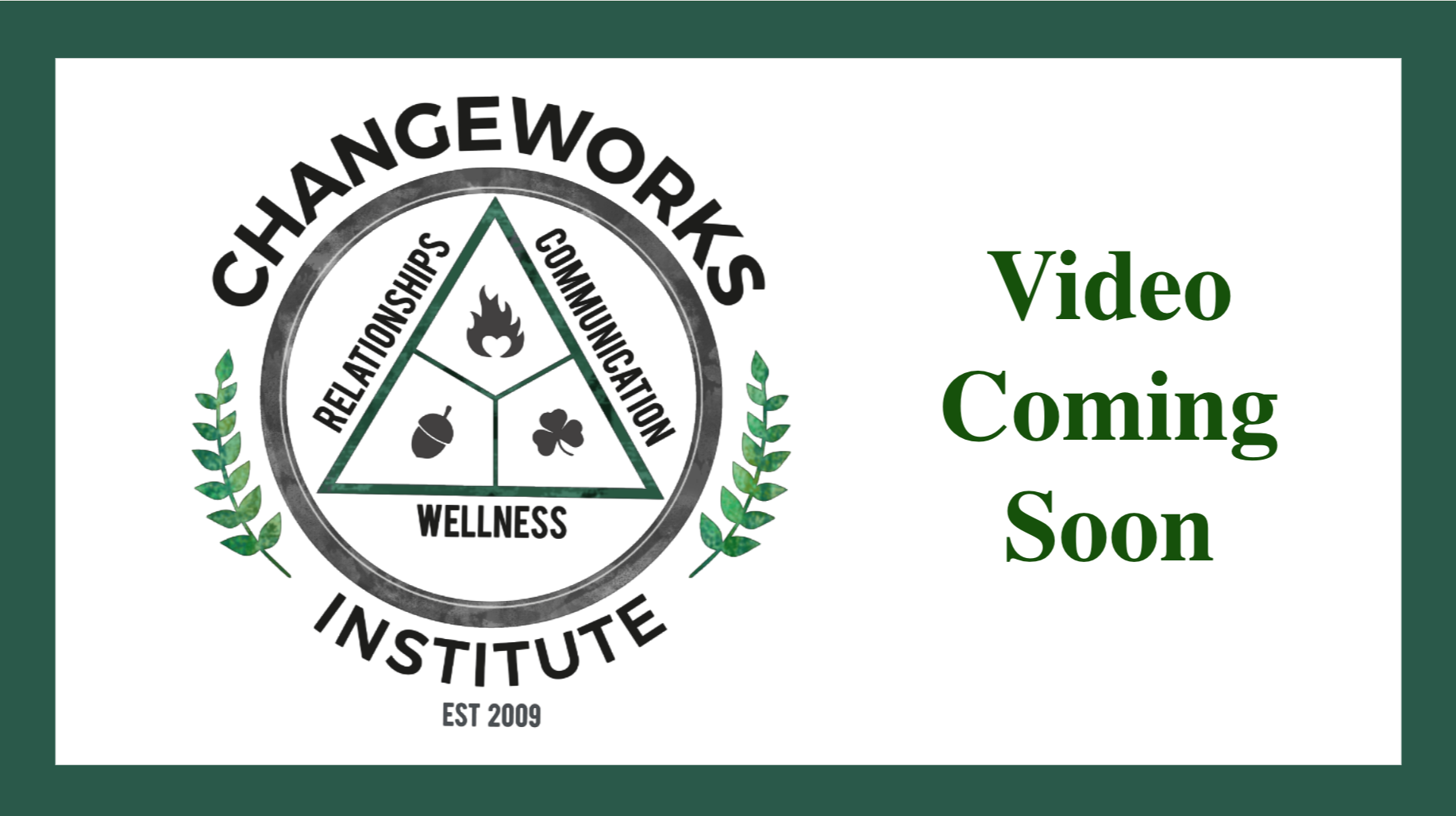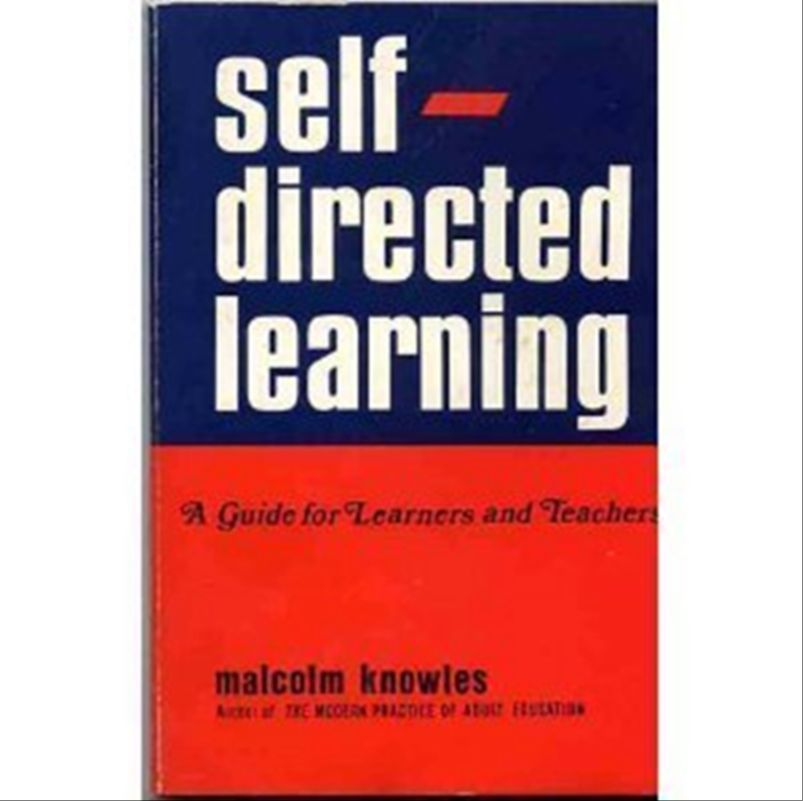Malcolm Knowles, PhD
“An essential aspect of maturing is developing the ability to take increasing responsibility for our own lives—to become increasingly self-directed.”
Influence on SDC Framework Focus
Knowles’ work on self-directed learning emphasizes the importance of adults taking responsibility for their own learning process. Jim Kelley, the founder and director of ChangeWorks Institute, found Knowles’ work at a time when he felt stuck and searching for a better experience in life and a way forward. No one had the exact answers he was looking for, and eventually he realized that to improve his experience, he’d have to take the wheel himself. Discovering Knowles gave him a structure to turn that realization into practical action.
That structure became a cornerstone of the Self-Directed Change® Frameworks and still shapes the way we teach and guide others today. At ChangeWorks, we embrace the kind of learning climate Knowles described as being built on care, respect, trust, and meaningful dialogue, and we work to bring that climate to life in everything we offer.
For a deeper dive, consider adding Dr. Knowles’ classic adult-education primer, Self-Directed Learning, to your library. You’ll find it in the ChangeWorks Bookstore.
Bookstore
Key Contributions and Concepts
Malcolm Knowles brought a fresh perspective to adult education by highlighting the unique needs and motivations of adult learners—treating them not as passive recipients, but as capable, self-directed individuals.
Andragogy – The Adult Learning Theory
Knowles popularized the term andragogy, distinguishing it from pedagogy, which refers to child-focused learning. He defined andragogy as "the art and science of helping adults learn." His model is based on the idea that adults are self-directed learners and that adult education is both developmental and essential. As information and technology continue to advance and work environments evolve, people actively seek out learning opportunities to improve their skills and find greater fulfillment.
In Self-Directed Learning, and later in The Modern Practice of Adult Education, Knowles outlined five conditions essential for creating a climate that supports self-directed learning.
First, learners need to feel genuinely cared for and like the facilitator sees them and wants them to succeed. Second, there must be mutual respect between learner and facilitator. Third, the environment should be conducive to dialogue, where learners are free to participate actively, raise questions, formulate their own answers, and follow their inquiry wherever it leads. Fourth, both roles should be clear. The facilitator provides guidance and resources. The learner engages those resources thoughtfully accepting or rejecting what resonates. And fifth, there must be mutual trust, built through honest communication about motivations and biases.
The Six Characteristics of Adult Learners
Knowles identified six key characteristics that differentiate adult learners:
- Need to Know – Adults need to understand why they need to learn something before they engage in learning.
- Self-Concept – As people mature, they move from being dependent learners to self-directed individuals.
- Experience – Adults bring life experiences to learning, which serve as resources for new knowledge.
- Readiness to Learn – Adults are more willing to learn when they see the relevance of the knowledge to their life roles.
- Orientation to Learning – Learning is problem-centered and focused on real-life applications rather than subject-centered.
Motivation to Learn – Adults are primarily motivated by internal factors (self-improvement, personal satisfaction) rather than external rewards.
Self-Directed Learning (SDL)
Knowles emphasized that adults prefer autonomy in learning. He encouraged facilitators rather than traditional instructors, with educators guiding learners to take responsibility for their own education. His work influenced lifelong learning models, online learning, and workplace training programs.
Experiential Learning & Problem-Based Learning
Knowles advocated for learning based on real-life experiences rather than rote memorization. He promoted case studies, role-playing, and hands-on learning as effective methods for adults.
Humanist Learning Theory
Knowles’ research and work heavily influenced humanist learning theory, which seeks to create better learning environments by engaging students to choose their topics and processes.
Application in Workplace & Continuing Education
His theories are widely applied in corporate training, professional development, and continuing education programs. He helped shape learning contracts, competency-based education, and informal learning models in business and academic settings.
Biography
Malcolm Knowles was an American educator who revolutionized adult education in the 20th century. Born in Montana, he later moved with his family to West Palm Beach, Florida, where he graduated from high school in 1930. He went on to attend Harvard University, earning a bachelor of arts degree in 1934.
An avid Boy Scout, Knowles found a natural fit for his first post-college role as Director of Training for the National Youth Administration in Massachusetts, where he worked from 1935 to 1940. He then served as Director of Adult Education at the Boston YMCA from 1940 to 1943.
In 1943, Knowles was drafted into the United States Navy and served as a Lieutenant (junior grade) until 1946. Following his military service, he became the Director of Adult Education at the YMCA in Chicago while pursuing graduate studies at the University of Chicago. He earned a Master of Arts in Adult Education in 1949.
Throughout the 1950s and 1960s, Knowles authored numerous influential books on adult learning and self-directed education. In 1960, he completed his PhD in Adult Education at the University of Chicago. That same year, he joined Boston University as a professor of education, where he established a new graduate program in adult education. He remained at Boston University until 1974, when he accepted a position at North Carolina State University as a professor of adult and community college education.
The 1970s marked a particularly impactful period in Knowles' career, highlighted by the publication of Self-Directed Learning (1975), one of his most influential works. Although he officially retired in 1979, he remained active as a consultant, workshop facilitator, and writer well into his later years. Malcolm Knowles died in 1997 at the age of 84. Over the course of his career, he authored more than 230 articles and 18 books, solidifying his legacy as a pioneering figure in adult education. His work continues to shape educational theory and practice today.
Knowles met Hulda Fornell while studying at Harvard, and the two married shortly after his graduation. They had two children.
Book Store
The Modern Practice of Adult Education (1988; Association Press)
- Presented Knowles' theory of andragogy and its distinctions from traditional pedagogy.
The Adult Learner: A Neglected Species (1973; Gulf Publishing Company)
- Explored the unique characteristics and needs of adult learners.
Self-Directed Learning: A Guide for Learners and Teachers (1975; Association Press)
- Elaborated on the concept of self-directed learning and its applications
The Modern Practice of Adult Education: From Pedagogy to Andragogy (1980; Cambridge Adult Education)
- Revised edition of his 1970 work, further developing the concept of andragogy.
Andragogy in Action: Applying Modern Principles of Adult Education (1984; Jossey-Bass)
- Provided practical applications of andragogical principles across various settings.
Using Learning Contracts (1986; Jossey-Bass)
- Detailed the use of learning contracts in adult education and professional development.
The Making of an Adult Educator: An Autobiographical Journey (1989; Jossey-Bass)
- Knowles' autobiographical account of his career and the development of his ideas.


